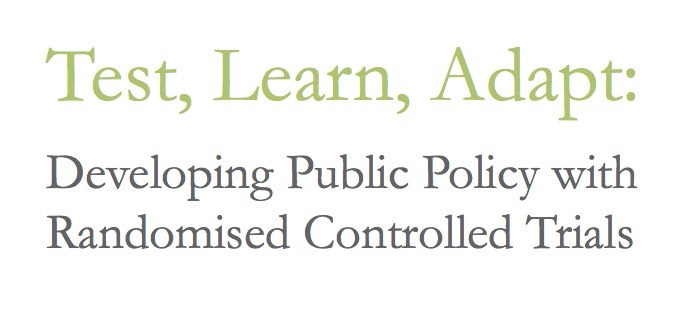

Ben Goldacre of Bad Science fame has co-written a UK Cabinet Office paper on how to improve government policy through better analysis, in the form of randomized controlled trials (RCTs).
A qualified doctor and professional debunker of bad medical analysis, Goldacre notes that RCTs are so widely used in areas such as medicine and web advertising that “failing to do them would be regarded as bizarre, or even reckless.”
However, using RCTs to test different approaches to solving public policy problems in social welfare, education, crime, and justice remains rare (see chart below).

The paper is a very clear introduction to how RCTs work and why they are so important. The various myths that prevent their wider usage (cost, effort, fairness, etc.) are thoroughly debunked.
The document includes UK examples of RCT successes: trials showed that text messages were effective at prompting people to pay fines on time, but giving the unemployed administratively-cheaper online alternatives to “signing on” every two weeks increased the time it took them to find work.
One example clearly communicates the value of the RCT approach. The US “Scared Straight” program attempted to deter juvenile delinquents from criminal behavior by exposing them to the “frightening realities of leading a life of crime.”
Scared Straight claimed success rates of up to 94%, and was copied in other countries – but the program had not included a control group. A later meta-analysis of randomized trials concluded that the program in fact led to higher rates of offending: “doing nothing would have been better than exposing juveniles to the program.”
The costs associated with the program were over 30 times higher than the benefits – meaning taxpayers spent a significant amount of money to actively increase crime!
The white paper is a great read for anybody interested in persuading others in their organization of the importance of using analytic techniques such as RCTs to improve outcomes — you can download it from the Cabinet Office website.
Share and Enjoy
• Facebook • Twitter • Delicious • LinkedIn • StumbleUpon • Add to favorites • Email • RSS







